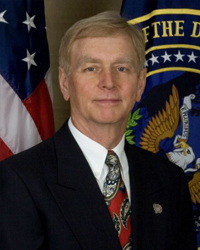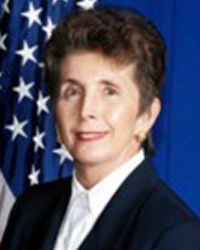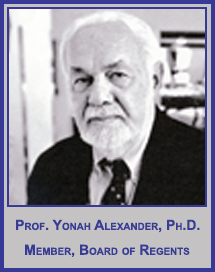Staff
Staff
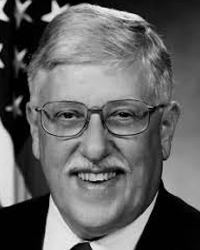 Since leaving the Pentagon in April 2001, Mr. Money has become a member and Chair of various USG Advisory Boards, Panels, and Commissions; a member of Board of Directors of several US Public Companies; a member of the Board of Directors of several US Private Companies; and a member of several US Company Advisory Boards.
Since leaving the Pentagon in April 2001, Mr. Money has become a member and Chair of various USG Advisory Boards, Panels, and Commissions; a member of Board of Directors of several US Public Companies; a member of the Board of Directors of several US Private Companies; and a member of several US Company Advisory Boards.
The Honorable Arthur L. Money became the Assistant Secretary of Defense for Command, Control, Communications and Intelligence (ASD C3I) on 5 October 1999 until 7 April 2001. Prior to his Senate confirmation as the ASD C3I, Mr. Money served as the Senior Civilian Official, Office of the ASD C3I, from February 1998 to October 1999. He also served as the Department of Defense (DOD) Chief Information Officer (CIO) from February 1998 to April 2001.
Mr. Money served as Assistant Secretary of the Air Force for Research, Development and Acquisition (also a Senate confirmed position), and as CIO of the Air Force from January 1996 to February 1998.
Prior to the USG duties, he was President of ESL Inc., a subsidiary of TRW from January 1990 to December 1994, prior to its consolidation with TRW's Avionics and Surveillance Group. Mr. Money then became Vice President and Deputy General Manager for the TRW Avionics and Surveillance Group (January 1995 to January 1996).

Michael McGrath is a Senior Fellow at the Potomac Institute. As a former Vice President at Analytic Services Inc. (ANSER), he led business operations in Systems and Operations Analysis. He previously served as the DASN (RDT&E), where he was a strong Navy proponent for improvements in technology transition, modeling and simulation, and test and evaluation. In prior positions, he served as: Vice President for Government Business at the Sarnoff Corporation (former RCA corporate lab); ADUSD for Dual Use and Commercial Programs in the Office of the Secretary of Defense (OSD), with responsibility for industrial base and commercial technology investment programs; Program Manager at the Defense Systems Research Projects Agency (DARPA), where he managed manufacturing technology programs; and Director of the DoD Computer-aided Acquisition and Logistics Support program, automating the interface between DoD and industry for technical data interchange and access. His early government career included positions in Logistics Management at Naval Air Systems Command and in Acquisition Management in OSD. He has served on Defense Science Board and National Academies studies, and is an active member of the National Defense Industrial Association (NDIA), the National Materials and Manufacturing Board, the Board on Army Science and Technology, and several university and not-for-profit advisory boards.
Dr. McGrath holds a BS in Space Science and Applied Physics and an MS in Aerospace Engineering from Catholic University, and a doctorate in Operations Research from George Washington University (where he also served as adjunct faculty).
 Dr. Schmorrow was named a Potomac Institute Senior Fellow in October 2013. Dr. Schmorrow is currently the Chief Scientist at Soar Technology (SoarTech) where he is leading the advancement of research and technology tracks to build intelligent systems for defense, government, and commercial applications that emulate human decision making in order to make people more prepared, more informed and more capable.
Dr. Schmorrow was named a Potomac Institute Senior Fellow in October 2013. Dr. Schmorrow is currently the Chief Scientist at Soar Technology (SoarTech) where he is leading the advancement of research and technology tracks to build intelligent systems for defense, government, and commercial applications that emulate human decision making in order to make people more prepared, more informed and more capable.
Dr. Schmorrow is one of the nation’s leading experts on national security research, technology, and policy related to information technology, medical research, and human performance applications. He led numerous initiatives that transformed promising technologies into operational capabilities and he successfully transitioned several significant prototypes to operational use. He has extensive experience collaborating with all of the DoD Services and Components, the National Science Foundation, the National Institutes of Health, the Department of Homeland Security, the Intelligence Community, and other federal agencies, as well as partner nations and international organizations.
Dr. Schmorrow has extensive senior-level experience in human systems, information technology and autonomy for national security applications. He was a key architect of the DoD’s sociocultural behavior research and engineering strategy and helped define the role of autonomy in DoD systems while serving as the Executive Secretary for the DoD’s Defense Science Board Task Force. His past service includes the Deputy Director, Human Performance, Training, and BioSystems at the Office of the Secretary of Defense, Program Manager for the Defense Advanced Research Projects Agency (DARPA), Research Scientist and Branch Head at the Naval Air Warfare Center, Chief Scientist for Human-Technology Integration at the Naval Research Lab, Assistant Professor at the Naval Postgraduate School, Program Officer at the Office of Naval Research (ONR), and Executive Assistant to the Chief of Naval Research. He received a commission in the U.S. Navy in 1993 as a Naval Aerospace Experimental Psychologist and completed his naval flight training in April 1994. He retired as a U.S. Navy Captain in 2013 after twenty years of service where he was both an aerospace experimental psychologist and an acquisition professional leading research and development programs. He was also the U.S. National Leader for DoD's international participation involving the human sciences to enhance the human contribution to military systems performance through both The Technical Cooperation Program (TTCP) and the NATO Human Factors and Medicine (HFM) Panel.
Dr. Schmorrow holds a doctorate in Experimental Psychology from Western Michigan University and Masters Degrees in Psychology and Philosophy. He is also a Distinguished Alumni from the Naval Postgraduate School where he obtained Masters Degrees in Operations Research as well as Modeling, Virtual Reality and Simulation. He has authored over fifty scientific publications, lectured internationally in fifteen countries, edited over a dozen professional journals and books and has received alumni recognition from both his alma maters. He is a recipient of the Navy’s Top Scientists and Engineers Award, as well as both the Society of U.S. Naval Flight Surgeons’ Sonny Carter Memorial Award for his contributions to improve the health, safety and welfare of military operational forces and the Human Factors and Ergonomics Society’s Leland S. Kollmorgen Spirit of Innovation Award for his contributions to operational neuroscience that led to the founding of the field of Augmented Cognition. He is currently serving as the Scientific and Technical Advisor of the Applied Human Factors and Ergonomics (AHFE) Conference Series, the Augmented Cognition Program Chair for the Human-Computer Interaction (HCI) International Conference Series, and is a Co-Editor of the Theoretical Issues of Ergonomics Science Journal. His military decorations include the Defense Superior Service Medal (2 awards), Legion of Merit, Meritorious Service Medal (3 awards), Navy Commendation Medal, Navy Achievement Medal, Armed Forces Service Medal, and NATO Medal
 A leading voice in national cybersecurity policy with over two decades of government and nonprofit sector experience, Ari Schwartz is Venable's Managing Director of Cybersecurity Services. In his role, Mr. Schwartz directs the establishment of cybersecurity consulting services for Venable, assisting organizations with understanding and development of risk management strategies, including implementation of the Cybersecurity Framework and other planning tools to help minimize risk.
A leading voice in national cybersecurity policy with over two decades of government and nonprofit sector experience, Ari Schwartz is Venable's Managing Director of Cybersecurity Services. In his role, Mr. Schwartz directs the establishment of cybersecurity consulting services for Venable, assisting organizations with understanding and development of risk management strategies, including implementation of the Cybersecurity Framework and other planning tools to help minimize risk.
Prior to joining Venable, Mr. Schwartz was a member of the White House National Security Council, where he served as Special Assistant to the President and Senior Director for Cybersecurity. As Director, Mr. Schwartz coordinated all network defense cybersecurity policy, including critical infrastructure protection, federal network protection, supply-chain efforts, cybersecurity standards promotion, and information sharing. He led the White House's legislative and policy outreach to businesses, trade groups, academics, and civil liberties groups on cybersecurity and developed new policies and legislation, including development of the Executive Orders on the Security of Consumer Financial Protection, Cybersecurity Information Sharing, and Sanctions Against Individuals Engaging in Malicious Cyber-Enabled Activities. Additionally, Mr. Schwartz led the successful White House rollout of the Cybersecurity Framework and the White House Cybersecurity Summit held at Stanford University.
Mr. Schwartz also served in the Department of Commerce, where he advised the Secretary on technology policy matters related to the National Institute of Standards and Technology (NIST), the National Telecommunications and Information Administration (NTIA), and the U.S. Patent and Trademark Office (USPTO). He led the Department's Internet Policy Task Force and represented the Obama Administrations on major Internet policy issues on privacy and security before Congress, at public events, and before the media.
Mr. Schwartz began his career in Washington at the Center for Effective Government (formerly OMB Watch). For twelve years, he worked at the Center for Democracy and Technology, including serving as Vice President and Chief Operating Officer, developing legislation and policy related to privacy, cybersecurity, and open government.
 Ambassador David J. Smith is Senior Fellow at the Potomac Institute for Policy Studies in Arlington. He is also Director of the Georgian Security Analysis Center (GSAC) at the Georgian Foundation for Strategic and International Studies in Tbilisi, Georgia. His other areas of expertise include U.S. strategic missile defense, arms control, European security policy, and security relationships with China, Russia, and Korea. He also has in-depth experience in building effective security institutions in the South Caucasus region.
Ambassador David J. Smith is Senior Fellow at the Potomac Institute for Policy Studies in Arlington. He is also Director of the Georgian Security Analysis Center (GSAC) at the Georgian Foundation for Strategic and International Studies in Tbilisi, Georgia. His other areas of expertise include U.S. strategic missile defense, arms control, European security policy, and security relationships with China, Russia, and Korea. He also has in-depth experience in building effective security institutions in the South Caucasus region.
From 2002 to 2006 he was U.S. Member of the International Security Advisory Board, assisting Georgia to build democracy and establish functional national security institutions. Earlier, President George H. W. Bush nominated Ambassador Smith to lead the U.S. – Soviet Defense and Space Talks. He was confirmed by the Senate and sworn in by Senator Bob Dole on September 21, 1989. He subsequently led the U.S. team that worked to negotiate an agreement to allow deployment of defenses against the growing threat of ballistic missiles until the demise of the Soviet Union in 1991.
From 2002 to 2005, Ambassador Smith was Chief Operating Officer of the National Institute for Public Policy. From 1993 to 2002, he was President of Global Horizons, Inc., consulting on defense, international security issues and overseas business development. He previously served as Chief of Staff for Arizona Congressman Jon Kyl, Assistant for Strategic Policy and Arms Control to Senate Republican Leader Bob Dole, Professional Staff Member for the Senate Committee on Foreign Relations and International Negotiations Staff Officer for the Joint Chiefs of Staff. His diplomatic experience includes service on U.S. delegations to negotiations on conventional forces, chemical weapons and space. He was a Major in the U.S. Air Force.
Ambassador Smith’s articles have appeared in publications around the world. He has contributed chapters to The Guns of August 2008, edited by Svante E. Cornell and S. Frederick Starr and #CyberDoc:No Borders—No Boundaries, edited by Timothy R. Sample and Michael S. Swetnam. Some recent articles include “Rouhani’s Rooster Tail,” co-authored with Bijan Kian and R. James Woolsey in The Hill and “Time to Confront China’s Cyber Espionage” in Defense News. His presentation, Russian Cyber Capabilities, Policy and Practice, has been made to dozens of US and international audiences.
Ambassador Smith holds degrees from the University of Arizona, the London School of Economics and Harvard University. He is a Ph.D. candidate at Ilia State University in Tbilisi, Georgia.
 John is a 30-year veteran of the defense and security industry and the Founder and Principal of Net-Centric Cybersecurity Consulting (NC3)-LLC, a cyber security consulting firm based in Columbia, Maryland where he focuses on cybersecurity technology, risk, compliance, and business strategy.
John is a 30-year veteran of the defense and security industry and the Founder and Principal of Net-Centric Cybersecurity Consulting (NC3)-LLC, a cyber security consulting firm based in Columbia, Maryland where he focuses on cybersecurity technology, risk, compliance, and business strategy.
Prior to founding NC3 in 2013 John was a Vice President and General Manager for General Dynamics from 2010 -2013, where he led a large portfolio of cybersecurity programs spanning the Intelligence Community, DHS, DoD, and the commercial sector. While at General Dynamics John led the acquisition of Fidelis Security Systems, a market leading network software security business, in order to reposition General Dynamic’s and their existing digital forensics and incident response business within the commercial network security space. Prior to joining General Dynamics John spent five years at Northrop Grumman in positions of increasing responsibility, spearheading their acquisition of Essex Corporation to reposition and grow a net-centric cyber focused business. From 1985-2005 John held a variety of technical and leadership positions with the DoD.
John served as a member of Intelligence and National Security Alliance (INSA) Board of Directors from 2011-2014 and remains an active member of their Cyber Security Council. John is a Senior Fellow at the Potomac Institute for Policy Studies (PIPS), and member of the advisory boards at the Maryland Center for Entrepreneurship and the BWTech@UMBC Cybersecurity Incubator. John is also an active mentor at the Mach37 Center for Innovative Technology (CIT) Cybersecurity Accelerator in Herndon VA, and is a member of the advisory boards of CounterTack, Disrupt6, and Identia, and Syncurity. He holds a bachelor’s degree with honors in Computer and Information Science from UMBC, a master’s degree in Program/Organization Management from Johns Hopkins University and an MBA in Finance with honors from The Wharton School, University of Pennsylvania.
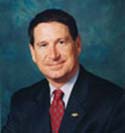 |
Timothy R. Sample, Member, Board of Regents and Senior Fellow
Mr. Timothy Sample served as the President of the Intelligence and National Security Alliance (INSA), responsible for managing the day-to-day operations of INSA, as well as developing and managing its programs and activities. Mr. Sample joined INSA after a position at General Dynamics Advanced Informations Systems as the Vice President for Strategic Intelligence Strategies and Programs. Along with his experience at General Dynamics, Mr. Sample has 25 years of intelligence and policy experience as both a supplier and user of intelligence. Mr. Sample was the Staff Director of the House Permanent Select Committee on Intelligence (HPSCI), a position that he held since June 2000. Mr. Sample’s experiences prior to Congress have included service as both an intelligence and imagery analyst in the Central Intelligence Agency. He has held senior government positions including Deputy U.S. Negotiator for the Strategic Arms Reduction Talks (START I) when it was signed in 1991, and the Executive Director of the Central Intelligence Nonproliferation Center. His military background includes service in intelligence units within the U.S. Air Force. Beyond his employment with General Dynamics, he has additional business experience, having worked on information processing and telecommunications technologies at GTE Government Systems, and as the co-founder and first President of the Potomac Institute for Policy Studies. |
 Vice Admiral William “Bill” Landay (USN, Ret.) is a Senior Fellow of the Potomac Institute for Policy Studies where he provides extensive expertise in the areas of Naval Operations, Defense Acquisition, Foreign Military Sales (FMS) /International sales, and the transition of Science and Technology (S&T) into production programs.
Vice Admiral William “Bill” Landay (USN, Ret.) is a Senior Fellow of the Potomac Institute for Policy Studies where he provides extensive expertise in the areas of Naval Operations, Defense Acquisition, Foreign Military Sales (FMS) /International sales, and the transition of Science and Technology (S&T) into production programs.
VADM Landay completed 35 years of distinguished service as a Naval officer in 2013. His operational assignments included Commanding Officer of USS Aquila (PHM 4) and USS Paul Hamilton (DDG 60) as well as assignments at the U.S. Transportation Command and the Secretary of the Navy Staff. As a Flag Officer, he served as the Program Executive Officer for the acquisition and support of Littoral and Mine Warfare programs, as the 21st Chief of Naval Research responsible for all Science and Technology (S&T) Programs for the Navy and Marine Corps, and as the Program Executive Officer for Ships responsible for the acquisition of all non-nuclear ships. His final assignment was as Director, Defense Security Cooperation Agency where he provided leadership, management, and oversight for a diverse portfolio of security cooperation and partner capacity building programs across the entire DoD with a value of almost $400 billion.
VADM Landay holds a Bachelor of Science degree in Systems Engineering from the Naval Academy, a Master of Science degree in Systems Technology (C4I) from the Naval Postgraduate School, and is a graduate of the Program for Management Development at the Harvard Business School.
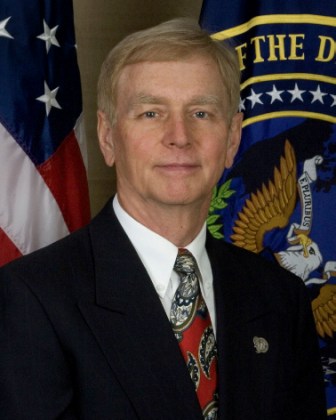 |
Alden V. Munson, Jr., Member, Board of Regents and Senior Fellow
Mr. Munson is an advisor to government and industry in defense and intelligence. He is a Senior Fellow and Member, Board of Regents at Potomac Institute for Policy Studies, and serves on the Defense Science Board. He was the Deputy Director of National Intelligence for Acquisition from May 2007 until July 2009. Previously he was a consultant in defense, space, and intelligence and was associated with the investment banking firm Windsor Group. He was Senior Vice President and Group Executive of the Litton Information Systems Group, leading information technology, command and control, and intelligence businesses for defense, intelligence, civil, commercial, and international customers. Mr. Munson was Vice President at TRW, in the System Integration Group, the Space and Electronics Group, and the Information Systems Group (the former TRW Credit Business). In these assignments, he led numerous space, intelligence, and information technology organizations and activities. He began his career at the Aerospace Corporation, where he provided system engineering support to many space and intelligence programs. Mr. Munson received a bachelor’s degree in mechanical engineering with distinction and departmental honors from San Jose State University (SJSU) and a master’s degree in mechanical engineering from the University of California, Berkeley. He later completed extensive coursework in computer science at University of California, Los Angeles and attended executive programs at Harvard (Competition and Strategy; National and International Security) and Stanford (Management of High Technology Enterprises). In 1997, he was named a Distinguished Graduate of the SJSU College of Engineering, and in 2000, the National Reconnaissance Office named Mr. Munson in the first group of Pioneers of National Reconnaissance. He received the National Intelligence Distinguished Service Medal in 2009. Mr. Munson serves on the board of DigitalGlobe, a commercial imagery company. He was a founding director of Paracel Inc. (now part of Aplera) and has held board positions with bd Systems, the Armed Forces Communications Electronics Association (AFCEA), and the Manhattan Beach Education Foundation, and is an active member of the Intelligence and National Security Alliance (INSA). |
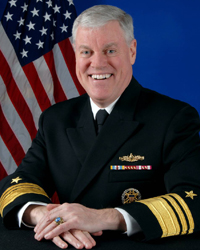 John Terence “Terry” Blake served more than 37 years in the United States Navy before retiring in February 2013. He most recently served as the Deputy Chief of Naval Operations for Integration of Capabilities and Resources (OPNAV N8). As the Navy’s Chief Financial Officer, he was charged with planning, programming and executing the Navy’s Budget. He also served in numerous positions in the Pentagon including Deputy Assistant Secretary of the Navy (Financial Management & Comptroller) and Deputy Director Resources and Acquisition (Joint Staff J8). His sea commands included a Destroyer, an AEGIS Cruiser, and a Carrier Strike Group.
John Terence “Terry” Blake served more than 37 years in the United States Navy before retiring in February 2013. He most recently served as the Deputy Chief of Naval Operations for Integration of Capabilities and Resources (OPNAV N8). As the Navy’s Chief Financial Officer, he was charged with planning, programming and executing the Navy’s Budget. He also served in numerous positions in the Pentagon including Deputy Assistant Secretary of the Navy (Financial Management & Comptroller) and Deputy Director Resources and Acquisition (Joint Staff J8). His sea commands included a Destroyer, an AEGIS Cruiser, and a Carrier Strike Group.
Since retiring from the Navy, VADM Blake has served as an independent consultant on a number of projects both in the defense and commercial sectors. He graduated from the U.S. Naval Academy with a Bachelor of Science degree in Political Science, a Master of Science degree in Finance from the Naval Postgraduate School and a Master of Science degree in National Security from the National War College. Additionally, he completed the Seminar XXI program in International Relations from MIT.
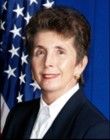 |
Kathleen Kiernan, Ph.D., Member, Board of Regents and Senior Fellow
Dr. Kathleen Kiernan is a 29-year veteran of Federal Law Enforcement and is currently CEO of the The Kiernan Group in Washington, D.C. which supports both federal and civil clients with a variety of consulting services. She previously served as the Assistant Director for the Office of Strategic Intelligence and Information for the Bureau of Alcohol, Tobacco, Firearms and Explosives (ATF) where she was responsible for the design and implementation of an intelligence-led organizational strategy to mine and disseminate data related to explosives, firearms and illegal tobacco diversion, the traditional and non-traditional tools of terrorism. Dr. Kiernan has a Doctorate in Education from Northern Illinois University (with highest honors) and a M.S. in Strategic Intelligence from the Joint Military Intelligence College in Washington, D.C. She also holds a M.A. in International Transactions from George Mason University. Dr. Kiernan has been involved with the Intelligence Community for over a decade, and served as the ATF representative to the Counterterrorism Center (CTC) at CIA during 1993-1995. Dr. Kiernan is a senior member on the International Association of Chiefs of Police (IACP) Terrorism subcommittee, and has presented training on Critical Incident Management and Explosives response protocol on a worldwide basis. |
 Lois Hollan has worked in Washington, DC as a management consultant for US Government Science & Technology programs since 1990. Ms. Hollan focused on management of complex, high-risk development programs for over 25 years, largely with the Defense Advanced Research Projects Agency’s image understanding, computer vision, automatic target recognition, and airborne video technology communities. Working with the House Science Committee in 2007, she made critical contributions to the legislative drafting and congressional responses related to the Advanced Research Projects Agency – Energy (ARPA-E) bill, leading to passage in 2009. In 2014, she was named a Senior Fellow at the Potomac Institute for Policy Studies. She currently provides management and strategic consulting under the High Performance Computing Modernization Program for technology development in highly complex, physics-based design environments. She also provides program development support for the National Geospatial-Intelligence Agency Research Division. In 1983, Lois Hollan was one of the first women in the world to drive a bobsled at the Olympic venue in Lake Placid, NY and became an international leader in the advancing of the sport for women. Those efforts led to worldwide competition and the adoption of the Women’s Bobsleigh Olympic event in 2020.
Lois Hollan has worked in Washington, DC as a management consultant for US Government Science & Technology programs since 1990. Ms. Hollan focused on management of complex, high-risk development programs for over 25 years, largely with the Defense Advanced Research Projects Agency’s image understanding, computer vision, automatic target recognition, and airborne video technology communities. Working with the House Science Committee in 2007, she made critical contributions to the legislative drafting and congressional responses related to the Advanced Research Projects Agency – Energy (ARPA-E) bill, leading to passage in 2009. In 2014, she was named a Senior Fellow at the Potomac Institute for Policy Studies. She currently provides management and strategic consulting under the High Performance Computing Modernization Program for technology development in highly complex, physics-based design environments. She also provides program development support for the National Geospatial-Intelligence Agency Research Division. In 1983, Lois Hollan was one of the first women in the world to drive a bobsled at the Olympic venue in Lake Placid, NY and became an international leader in the advancing of the sport for women. Those efforts led to worldwide competition and the adoption of the Women’s Bobsleigh Olympic event in 2020.
 |
John C. Johnson, Member, Board of Regents and Senior Fellow
As VP, GM & Deputy to the President of Electronic Systems of Northrop Grumman Corporation, Mr. Johnson has oversight responsibility for developing, producing, and providing critical technologies, systems, and services for the Department of Defense, other government agencies, and commercial and international customers. Mr. Johnson joined Northrop Grumman in 1989 following a distinguished 20-year career with the U.S. Air Force. He has held a number of executive positions in the Business Development, Systems Development &Technology (SD&T) and Aerospace organizations. He was recently elected to the Board of Directors for IEC Electronics. He retired as a colonel and commander of flight operations for the 33rd Tactical Fighter Wing. He achieved the rank of colonel after 14 years in service. His career included more than 4,000 flight hours, the Legion of Merit, Distinguished Flying Cross and multiple Air Medals for combat operations in Southeast Asia. During his Air Force career, he flew the RC-135, T-38, FB-111 and F-15 as both an instructor and command pilot. His academic credentials include a bachelor’s degree from New Mexico Highlands University and a master’s degree (MS) in systems management from the University of Southern California (USC) School of Engineering. He completed the General Manager Program at Harvard Business School and Executive Strategy program at UCLA. Mr. Johnson is a member of the Society of Automotive Engineers, Society of Manufacturing Engineers, U.S. Air Force Association, National Association of Corporate Directors and Boardroom. He has served on the Board of Councilors for USC School of Engineering. |
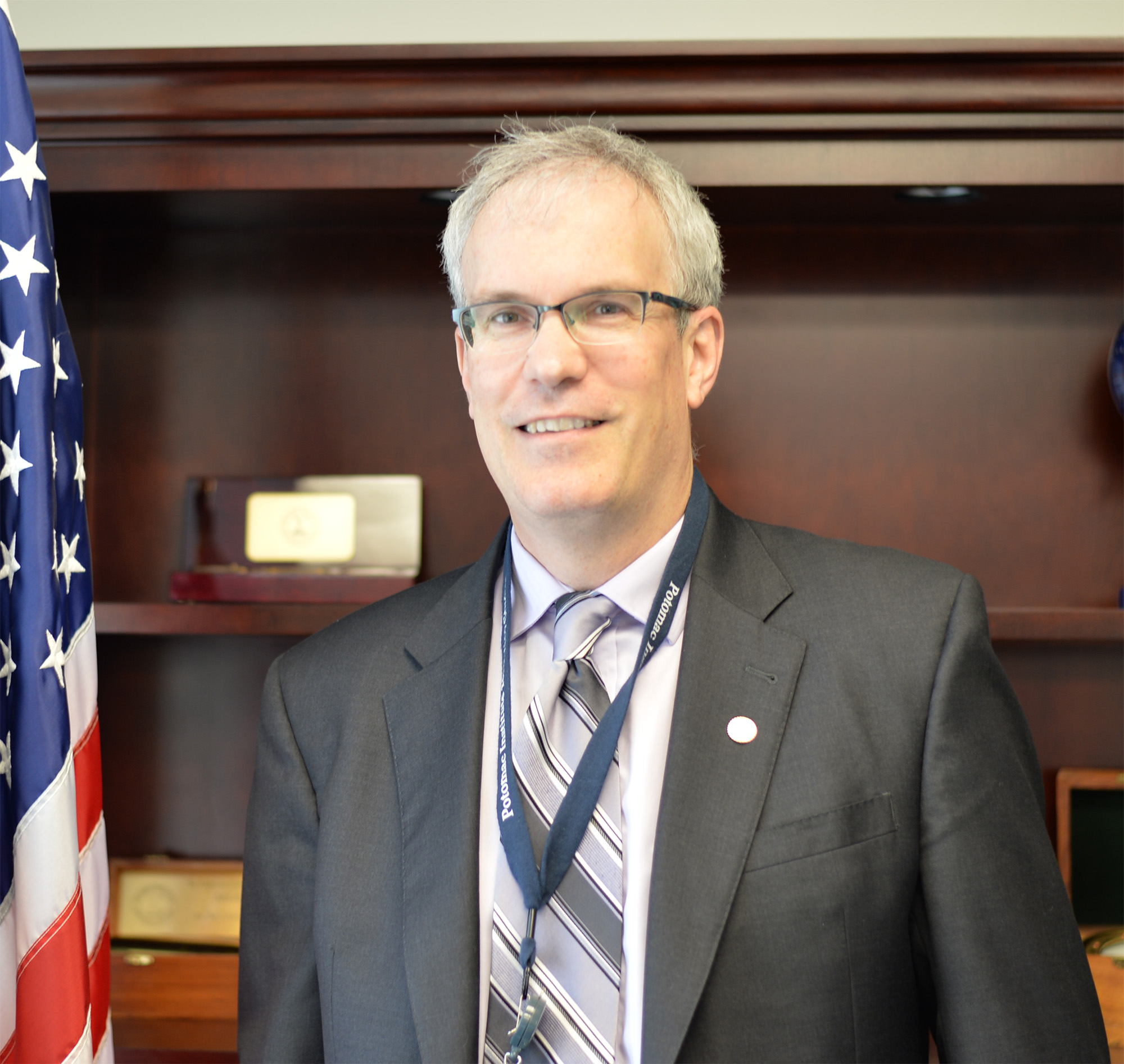
Dr. Fritze is a Senior Fellow and former Vice President at the Potomac Institute for Policy Studies responsible for the Microelectronics Policy portfolio. His activities include USG trusted access strategies, support of needed legacy technologies, DOD innovation policy and outreach to Industry and strengthening the US Microelectronics Industrial Base. He is also the Director of the VITAL Center (Vital Infrastructure Technology And Logistics) at Potomac.
Dr. Fritze was the Director of the Disruptive Electronics Division at the USC Information Sciences Institute. (2010-2015). He also held a Research Professor appointment in the USC Ming Hsieh Department of Electrical Engineering (Electrophysics). His research interests at ISI included Trusted Electronics, CMOS Reliability & Robustness, Low power 3DIC enabled electronics and Rad-hard electronics. He was a Program Manager at the DARPA Microsystems Technology Office (MTO) from 2006-2010. While at DARPA, Dr. Fritze was responsible for Programs in the areas of 3D Integrated Circuits (3DIC), Steep-Subthreshold-slope Transistors (STEEP), Radiation Hardening by Design (RHBD), Carbon Electronics for RF Applications (CERA), Silicon-based RF (TEAM), Ultra-low power Digital (ESE), Highly regular designs (GRATE) and Leading-edge foundry access (LEAP).
Prior to joining DARPA, Dr. Fritze was a staff member from 1995-2006 at MIT Lincoln Laboratory in Lexington, Massachusetts, where he worked on fully-depleted silicon on insulator (FDSOI) technology development with an emphasis on novel devices. Particular interests included highly scaled, tunneling-based, and ultra-low power devices. Dr. Fritze also worked in the area of silicon-based integrated optics. Another research interest at Lincoln Laboratory was in the area of resolution-enhanced optical lithography and nanofabrication with particular emphasis on low volume technological solutions.
Dr. Fritze received a Ph.D. in Physics from Brown University in 1994, working in the area of compound semiconductor quantum well physics. He received a B.S. in Physics in 1984 from Lehigh University. Dr. Fritze is an elected member of Tau Beta Pi and Sigma Xi. He is a recipient of the Office of the Secretary of Defense Medal for Exceptional Public Service awarded in 2010. He is a Senior Member of the IEEE and is active on the GOMAC Conference Program Committee as well as the NDIA Electronics Division Policy Group. Dr. Fritze has published over 75 papers and articles in professional journals and holds several U.S. Patents.
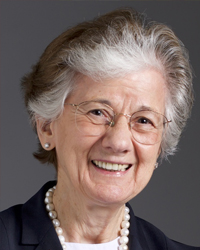 Dr. Rita Colwell’s interests are focused on global infectious diseases, water, and health and Dr. Colwell developed an international network to address emerging infectious diseases and water issues, including safe drinking water for both the developed and developing world, in collaboration with Safe Water Network, headquartered in New York City.
Dr. Rita Colwell’s interests are focused on global infectious diseases, water, and health and Dr. Colwell developed an international network to address emerging infectious diseases and water issues, including safe drinking water for both the developed and developing world, in collaboration with Safe Water Network, headquartered in New York City.
Dr. Colwell served as the 11th Director of the National Science Foundation, 1998-2004. In her capacity as NSF Director, she served as Co-chair of the Committee on Science of the National Science and Technology Council. One of her major interests includes K-12 science and mathematics education, graduate science and engineering education, and increased participation of women and minorities in science and engineering.
Dr. Colwell served as President of the University of Maryland Biotechnology Institute and Professor of Microbiology and Biotechnology at the University Maryland. She was also a member of the National Science Board from 1984 to 1990.
Dr. Colwell has been awarded 63 honorary degrees from institutions of higher education, including her Alma Mater, Purdue University and is the recipient of the 2005 Order of the Rising Sun, Gold and Silver Star, bestowed by the Emperor of Japan, the 2006 National Medal of Science awarded by the President of the United States, the 2010 Stockholm Water Prize awarded by the King of Sweden, the 2017 Vannevar Bush Award from the National Science Foundation, the 2017 International Prize for Biology from the Japan Society for the Promotion of Science, the 2017 Chevalier de la Légion d’Honneur (“Knight of the Legion of Honor”) bestowed by the Ambassador of France, and the 2018 Lee Kuan Yew Water Prize of Singapore. Dr. Colwell is an honorary member of the microbiological societies of the UK, Australia, France, India, Israel, Bangladesh, and the U.S. and has held several honorary professorships, including the University of Queensland, Australia. A geological site in Antarctica, Colwell Massif, has been named in recognition of her work in the Polar Regions.
Dr. Colwell has held many advisory positions in the U.S. Government, nonprofit science policy organizations, and private foundations, as well as in the international scientific research community. She is a nationally-respected scientist and educator, and has authored or co-authored 19 books and more than 800 scientific publications. She produced the award-winning film, Invisible Seas, and has served on editorial boards of numerous scientific journals. She serves as Chair of the Research Board for the Gulf of Mexico Research Initiative (2010-2020).
Dr. Colwell has previously served as Chairman of the Board of Governors of the American Academy of Microbiology and also as President of the American Association for the Advancement of Science, the Washington Academy of Sciences, the American Society for Microbiology, the Sigma Xi National Science Honorary Society, the International Union of Microbiological Societies, and the American Institute of Biological Sciences (AIBS). Dr. Colwell is a member of the U.S. National Academy of Sciences, the Royal Swedish Academy of Sciences, Stockholm, the Royal Society of Canada, the Royal Irish Academy, the Bangladesh Academy of Science, the Indian Academy of Science, the American Academy of Arts and Sciences, and the American Philosophical Society.
Born in Beverly, Massachusetts, Dr. Colwell holds a B.S. in Bacteriology and an M.S. in Genetics, from Purdue University, and a Ph.D. in Oceanography from the University of Washington.
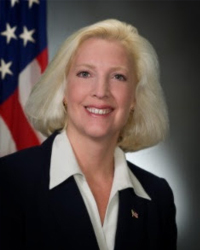 Melissa Hathaway brings a multi-disciplinary and multi-institutional perspective to strategic consulting and strategy formulation for public and private sector clients. She is a member of the Board of Regents at Potomac Institute for Policy Studies. She is also serves as a Senior Advisor at Harvard Kennedy School’s Belfer Center, a Distinguished Fellow at the Centre for International Governance Innovation in Canada, and is the Chair of the Council of Experts for the Global Cyber Security Center in Italy. She served in two U.S. presidential administrations, spearheading the Cyberspace Policy Review for President Barack Obama and leading the Comprehensive National Cybersecurity Initiative (CNCI) for President George W. Bush. At the conclusion of her government service she received the National Intelligence Reform Medal in recognition of her achievements.
Melissa Hathaway brings a multi-disciplinary and multi-institutional perspective to strategic consulting and strategy formulation for public and private sector clients. She is a member of the Board of Regents at Potomac Institute for Policy Studies. She is also serves as a Senior Advisor at Harvard Kennedy School’s Belfer Center, a Distinguished Fellow at the Centre for International Governance Innovation in Canada, and is the Chair of the Council of Experts for the Global Cyber Security Center in Italy. She served in two U.S. presidential administrations, spearheading the Cyberspace Policy Review for President Barack Obama and leading the Comprehensive National Cybersecurity Initiative (CNCI) for President George W. Bush. At the conclusion of her government service she received the National Intelligence Reform Medal in recognition of her achievements.
Previously, Ms. Hathaway was a Principal with Booz Allen & Hamilton, Inc., where she led two primary business units: information operations and long range strategy and policy support, supporting key offices within the Department of Defense and Intelligence Community. Earlier in her career she worked with Evidence Based Research, Inc. and the American Foreign Service Association. Ms. Hathaway is a frequent keynote speaker on cyber security matters, and regularly publishes papers and commentary in this field.
 |
Dr. Terry Collins, Member, Board of Regents and Senior Fellow
Dr. Terry Collins is the Chairman of the Board, CEO and President of ArgonST. Dr. Collins has been a Director of the Company since September 2004. Dr. Collins also serves on the Board of Directors of James Monroe Bank. Dr. Collins was one of the three original founders of Argon Engineering Associates, Inc., (Argon Engineering) in 1997. Dr. Collins served as Chairman of the Board and Chief Executive Officer of Argon Engineering from its inception until the merger with Sensytech in September 2004. From 1995 until 1997 he was the General Manager of the Falls Church division of Raytheon E-Systems. From 1989 until 1995 Dr. Collins was President of Engineering Research Associates, a wholly owned subsidiary of E-Systems Corporation. Dr. Collins served as the senior member of the engineering management team at Engineering Research Associates from 1979 until its acquisition by E-Systems Corporation in 1989. |
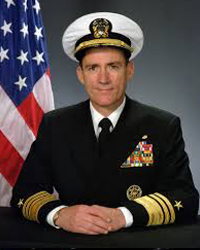 ADM Natter is President of R.J. Natter & Associates, LLC, a nationwide consulting and advocacy firm specializing in corporate and defense strategy. Clients have included the State of Florida Governor’s Office; McDonald's Corporation; Lockheed Martin Corp; Microsoft Corp; IBM Corp; DLA Piper Rudnick US LLP; Vornado Realty Trust; Embraer North America; Sumitomo North America; and myriad other U.S. and international corporations. Admiral Natter is Chairman of the Board of G4S Government Solutions (GS), a premier U.S. provider of security and infrastructure support solutions for customers with complex requirements in highly regulated industries. G4S GS is a U.S. government security-cleared commercial nuclear security business and is an independent operating unit of G4S plc. He also serves on the Board of Directors of BAE Systems, Inc, a U.S. subsidiary of BAE Systems plc.
ADM Natter is President of R.J. Natter & Associates, LLC, a nationwide consulting and advocacy firm specializing in corporate and defense strategy. Clients have included the State of Florida Governor’s Office; McDonald's Corporation; Lockheed Martin Corp; Microsoft Corp; IBM Corp; DLA Piper Rudnick US LLP; Vornado Realty Trust; Embraer North America; Sumitomo North America; and myriad other U.S. and international corporations. Admiral Natter is Chairman of the Board of G4S Government Solutions (GS), a premier U.S. provider of security and infrastructure support solutions for customers with complex requirements in highly regulated industries. G4S GS is a U.S. government security-cleared commercial nuclear security business and is an independent operating unit of G4S plc. He also serves on the Board of Directors of BAE Systems, Inc, a U.S. subsidiary of BAE Systems plc.
Following one year enlisted service and graduation from the U.S. Naval Academy, Natter rose to four-star Admiral. In 2003, Admiral Natter completed a distinguished 41-year Navy career as Commander of the U.S. Atlantic Fleet, the first Commander of U.S. Fleet Forces Command, the first Commander of all U.S. Navy and Coast Guard homeland defense forces under the newly created Northern Command, and the Commander-in-Chief of the NATO Western Atlantic Command. At that time the Atlantic Fleet consisted of over 160,000 Sailors and Marines, 162 ships and 1,200 aircraft, as well as 18 major shore stations. Admiral Natter’s military decorations include the Silver Star Medal, four awards of the Distinguished Service Medal, the Defense Superior Service Medal, the Bronze Star Medal with Combat V, Navy Commendation Medal with Combat V, Navy Achievement Medal with Combat V, and the Purple Heart, among others. His personal honors include the 1998 Order of the Rising Sun Medal by the Emperor of Japan; the 1998 Order of National Security Medal from the President of the Republic of Korea; the 2003 Ellis Island Medal of Honor, and the 2004 Distinguished Sea Service Leader of the Year by the Naval Order of the United States. Natter has earned Masters degrees in Business Management and International Relations, and is the fifth recipient of the Naval War College Distinguished Graduate Leadership Award.
In 2012 Natter assumed Chairmanship of the U.S. Naval Academy Alumni Association Board of Trustees, representing about 55,000 living graduates. He is also on the Board of the National Navy SEAL Museum.
 |
H. Lee Buchanan, Member, Board of Regents and Senior Fellow Lee Buchanan is a Venture Partner at Paladin Capital Group. He is a former Assistant Secretary of the Navy for Research, Development, and Acquisition, responsible for all research development and procurement of defense systems for the Navy and the Marine Corps. Hon. Buchanan also served as the Deputy Director of the Defense Advanced Research Agency in the role of the Chief Operating Officer for the central Research and Development Organization for the Department ... of Defense. There, he directed a multibillion-dollar program of basic and applied research conducted by industry, universities, and national and military laboratories. Hon. Buchanan served as a Director at CloudShield Technologies, Inc. |
 LtGen Flynn joins the Potomac Institute with significant operational expertise and proven leadership, management, training and education following a distinguished career of more than 38 years in the U.S. Marine Corps. Years of practical experience and graduate level education in national security and international affairs are reflected in an extensive record across a broad spectrum of defense operations. While on active duty, LtGen Flynn created the Joint Force Development Directorate at the Joint Chiefs of Staff, managing more than 2,000 people and a $1 billion organization that developed new military operational, concepts, doctrine and training. He supervised all elements of the Combatant Commander exercise program, which provides staff training and evaluates the mission performance of the largest military command organization in the United States. He also developed policy for and provided oversight of all professional military education. As Deputy Commandant of the Marine Corps for Combat Development and Integration, LtGen Flynn determined future requirements for all equipment, training, personnel, facilities, and supporting activities of the Marine Corps. His role as the Deputy Commanding General, Multi-National Corps, Iraq, involved leading combat operations and providing direct supervision of support activities of more than 50,000 service members and civilians, while conducting operational planning and execution to enable coalition operations, including extensive interaction with United Kingdom and Coalition Special Operations Forces. LtGen Flynn supervised and provided oversight, policy and guidance for Marine Corps training as the Commanding General, Marine Corps Training and Education Command. As Chief of Staff, U.S. Special Operations Command, LtGen Flynn supervised all support requirements for a 2,000-person organization, responsible for the planning, direction and financial execution of the headquarters. He is a member of the Council on Foreign Relations and has several Masters Degrees in National Security and Strategy, and International Relations.
LtGen Flynn joins the Potomac Institute with significant operational expertise and proven leadership, management, training and education following a distinguished career of more than 38 years in the U.S. Marine Corps. Years of practical experience and graduate level education in national security and international affairs are reflected in an extensive record across a broad spectrum of defense operations. While on active duty, LtGen Flynn created the Joint Force Development Directorate at the Joint Chiefs of Staff, managing more than 2,000 people and a $1 billion organization that developed new military operational, concepts, doctrine and training. He supervised all elements of the Combatant Commander exercise program, which provides staff training and evaluates the mission performance of the largest military command organization in the United States. He also developed policy for and provided oversight of all professional military education. As Deputy Commandant of the Marine Corps for Combat Development and Integration, LtGen Flynn determined future requirements for all equipment, training, personnel, facilities, and supporting activities of the Marine Corps. His role as the Deputy Commanding General, Multi-National Corps, Iraq, involved leading combat operations and providing direct supervision of support activities of more than 50,000 service members and civilians, while conducting operational planning and execution to enable coalition operations, including extensive interaction with United Kingdom and Coalition Special Operations Forces. LtGen Flynn supervised and provided oversight, policy and guidance for Marine Corps training as the Commanding General, Marine Corps Training and Education Command. As Chief of Staff, U.S. Special Operations Command, LtGen Flynn supervised all support requirements for a 2,000-person organization, responsible for the planning, direction and financial execution of the headquarters. He is a member of the Council on Foreign Relations and has several Masters Degrees in National Security and Strategy, and International Relations.





